Arthritis and insomnia are a dangerous combination and generally go hand-in-hand like Siamese twins. If you have arthritis, you probably find that you have difficulty going to sleep.
How can you go to sleep anyway when you are experiencing a throbbing or aching pain in your joints?
The tossing and turning all night long prevents you from getting sufficient sleep to stay healthy, which of course means that your arthritis will worsen thereby creating the perfect recipe for falls. So, how can you cope with this?
What is Insomnia?
The condition of insomnia is where you have trouble falling or remaining asleep. Within this broad description are shades of variation.
Some people with insomnia find it difficult to fall asleep.
Others may sleep throughout the night but exhibit strange characteristics in their sleep pattern.
The problem they have may be that they wake up too early and are not able to get back to sleep, or that they do not feel refreshed after many hours of sleep.
Insomnia can drain your energy level and mood, health, work performance and quality of life (Mayo Clinic 2016).
It can lead to daytime drowsiness, fatigue, slowed reaction times, anxiety, irritability, and depression and can make you more prone to accidents and falls.
Inadequate Sleep
How much sleep is enough varies from person to person, but most adults need seven to eight hours a night.
About 30% of adults suffer from acute insomnia – bouts of insomnia that last a few days at a time, while 10% of adults suffer ongoing difficulty sleeping, known as chronic insomnia.
Chronic insomnia is that which occurs more than 3 nights a week for over a month (J Hopkins Medicine, 2020)
Arthritis sufferers typically find that they experience chronic insomnia or insomnia that does not go away and occurs for a long period.
Chronic insomnia is usually caused by stress, habits disruptive of sleep, and traumatic events in life. It can be addressed by treating the underlying cause, but resolution may sometimes be awfully slow.
Risk Factors for Insomnia in Seniors
Generally, older adults are predisposed to insomnia. The risk of insomnia is greater if you are:
- Over 60 years of age – As part of the aging process as changes as health and sleep patterns occur.
- Female – Menopause causes changes in hormonal levels and the accompanying hot flashes and night sweats can be disruptive to sleep.
- Experiencing a mental health disorder
- Having health conditions – Includes illness
- Under stress – Temporary insomnia can be caused by general stressful conditions, while chronic insomnia may be caused by major stressful events which may be long-lasting.
Insomnia can affect your memory and concentration. Chronic insomnia raises your risk of high blood pressure, coronary heart disease, diabetes, and cancer (NHLBI 2019).
Why Seniors with Arthritis and Insomnia Develop Chronic Insomnia
We know that arthritis is a persistent and deeply rooted disease that can affect various joints in the body.
It has also been determined that seniors are already at a higher risk of developing insomnia, but this can typically develop into chronic insomnia in those with arthritis.
The question is “Why”?
If you develop chronic insomnia, schedule a visit to see your doctor or healthcare professional especially if it starts to interfere with your day-to-day activities or cause other problems.
With arthritis, experiencing chronic insomnia becomes especially important as it could increase your risk of accidents and falls.
There are many reasons for chronic insomnia in seniors with arthritis, all of which can be easily explained.
Age
Top of the list is age. Insomnia becomes more common with age (Mayo Clinic 2016). This is because sleep patterns change as you grow older, and sleep is not as restful or refreshing as when you were younger.
You still however need between the same 7-8 hours of sleep as most younger people require.
Have you noticed that you get tired much earlier in the evening and wake up earlier in the morning?
That sounds or noise which typically would not have affected you before now become disruptive to your sleep?
These changes are normal, but if you couple this with aching arthritic joints, then you have a high likelihood of developing chronic insomnia.

Health Conditions
Aside from arthritis, there are a host of other health conditions in seniors and the elderly that can affect sleep patterns and their quality. These include:
- Bladder problems such as incontinence
- Prostrate problems
- Back problems
- Sleep apnea
- Restless legs syndrome
- Anxiety
- Depression
Being awake then tends to amplify perception of your arthritis pain, resulting in more tossing and turning in bed and – chronic insomnia.
Can Arthritis Affect Sleep? – Check Your Medications
The increased use of prescribed medications by seniors and the elderly (in many cases, understandably necessary) sometimes result in an increased chance of insomnia associated with these medications.
For example, insomnia can be a side effect of the medication used to treat arthritis. These medications may eliminate the pain but can make you stay up all night.
On the other hand, if you do not take the medication, you may also lie awake all night tossing and turning with pain. It is like being between the devil and the deep blue sea!
Stress
Worry in older adults about anything, including something such as mundane as an appointment with the doctor can cause them to stay awake all night long.
Arthritis and Insomnia in Seniors – Prevention and Management
The shorter the duration of sleep and the poorer its quality due to frequent waking up in the night, the more pain an arthritis sufferer experiences.
It is therefore logical to deduce that if the quality of sleep can be improved, arthritic pain can also be reduced.
There are behavioral / lifestyle changes that can help prevent insomnia.
These should be addressed first before selecting physical products like weighted blankets that can further promote sound sleep. Discuss with your doctor about if use of a weighted blanket is the right solution for you. Using good comfortable pillows can also help.
Prevention – Recommended Behavioral Changes of Seniors Experiencing Arthritis and Insomnia
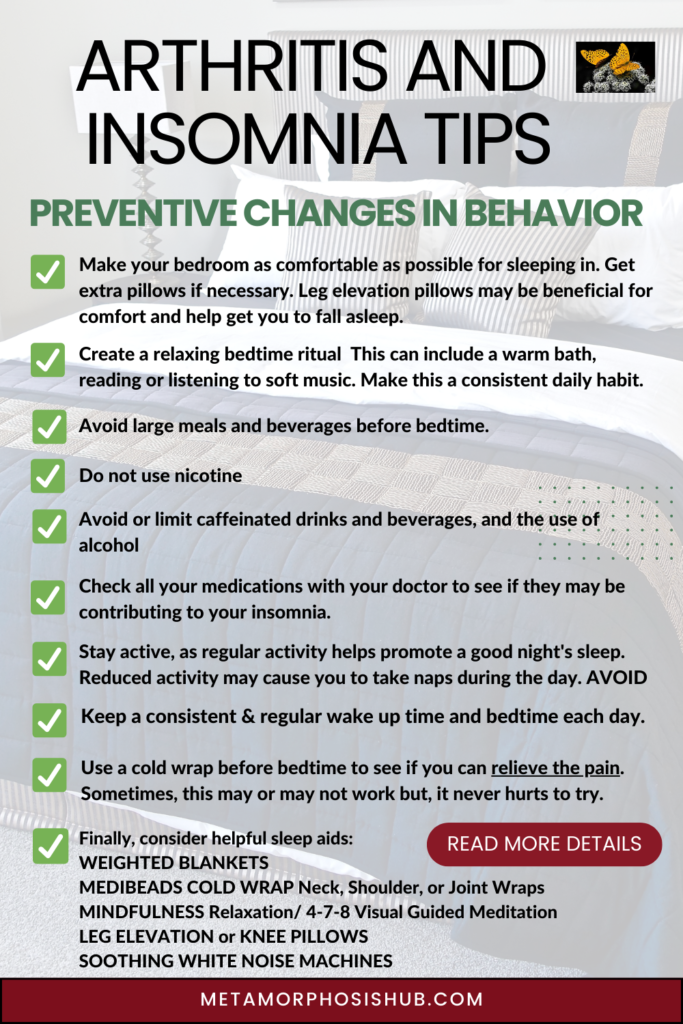
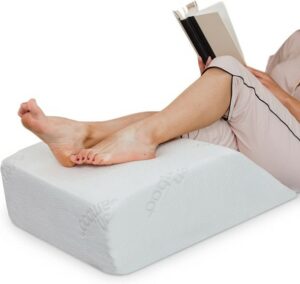
Other Sleep Aids For Arthritis and Insomnia
1.Leg Pillows: Check a previous article – Leg Cramps in Seniors. The Best Leg Pillows for Night Relief for a variety of options and what you need to consider when selecting a brand to buy.
2. Cold Wraps: Use these before bed to try to relieve any pain you may have. They are available in sizes for the shoulder/back, neck, knee joints, and gloves for the hands.
Just pop them in the freezer for a few minutes prior to use.
3. Weighted Blankets: These are blankets that have pellets, plastic or glass beads sewn into them to make them heavy. These apply equal pressure over a body when under the blanket and are scientifically-proven to help you relax, reduce stress and improve sleep through the use of Deep Touch Pressure (DTP).
A variety of weighted blankets exist for hot and cold sleepers, with the option of bamboo or cotton fabric outer shell, glass bead weighting, and different colors to suit individual preferences. Some are sold with duvet covers, while duvet covers are sold separately for others.
4. White Noise Sound Machines: These come in all shapes and colors. The best ones usually come with more than 25 soothing sound tracts that help you fall asleep faster.
5. Mindfulness Relaxation apps or CDs: Simple and straightforward forms of mindfulness meditation
6. Visual Guided Meditation 4-7-8 Breathing: Highly effective as it is almost similar to “counting sheep. Check a comparison of 10 Best Guided Meditation Apps.
Conclusion – Arthritis and Insomnia
Insomnia can result in daytime drowsiness, fatigue and slowed reaction times. This is ultimately why seniors having arthritis and insomnia need to be extremely careful.
It can affect your performance in everything you do and can be a quick recipe for unexpected falls.
Please share your experience with arthritis and insomnia in the comment box below
Related Articles
- What is Arthritis? Focus on Seniors
- Top Rated Orthopedic Pillows for Neck Pain. The Best Options
- Arthritis and Insomnia – A Sure Recipe for Senior Falls
- Why do Older People Sleep So Much? – Repair and Rejuvenate
- What Causes Fatigue in Older Adults – Facts versus Myths
- 10 Foods that Promote Better Sleep – Tips
- 7 Natural Sleep Aids for Adults – Help Sleep Quality
FAQs for Arthritis and Insomnia
Can arthritis affect sleep?
Yes. If not properly managed.
References
Mayo Clinic (2016) Insomnia. https://www.mayoclinic.org/diseases-conditions/insomnia/symptoms-causes/syc-20355167?p=1
John Hopkins Medicine (2020) Insomnia https://www.hopkinsmedicine.org/health/conditions-and-diseases/insomnia
Health Grades (2019) Insomnia https://www.healthgrades.com/right-care/sleep-disorders/insomnia
The National Heart, Lung, and Blood Institute (NHLBI) Insomnia (2019) https://www.nhlbi.nih.gov/health-topics/insomnia
Senior Safety Are Weighted Blankets Safe For The Elderly? https://seniorsafetyadvice.com/are-weighted-blankets-safe-for-the-elderly/
Harvard Women’s Health Watch (2019) Anxiety and stress weighing heavily at night? A new blanket might help https://www.health.harvard.edu/mind-and-mood/anxiety-and-stress-weighing-heavily-at-night-a-new-blanket-might-help
Sonno Zoha (2018 ) Can a weighted blanket help relieve your chronic symptoms? https://blog.sonnozona.com/can-a-weighted-blanket-help-relieve-your-chronic-symptoms/



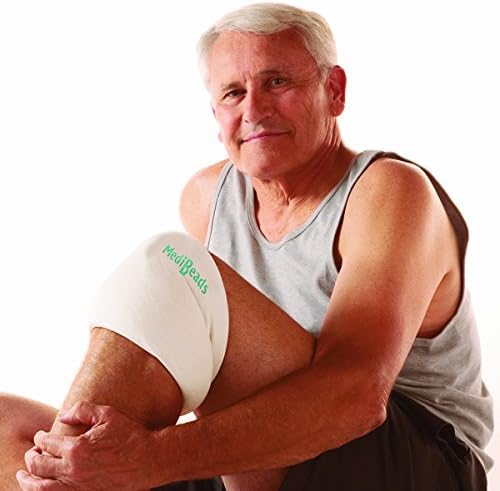
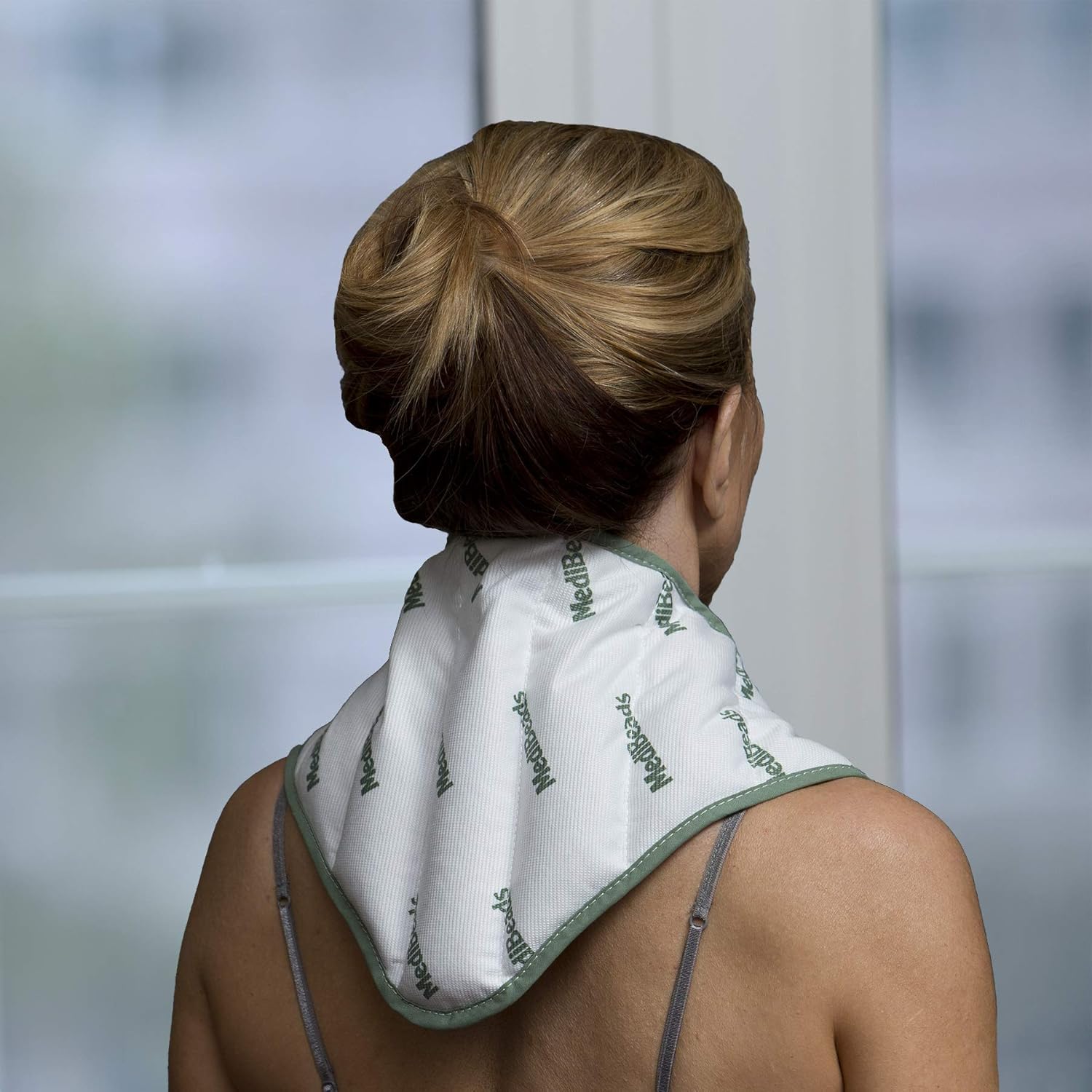
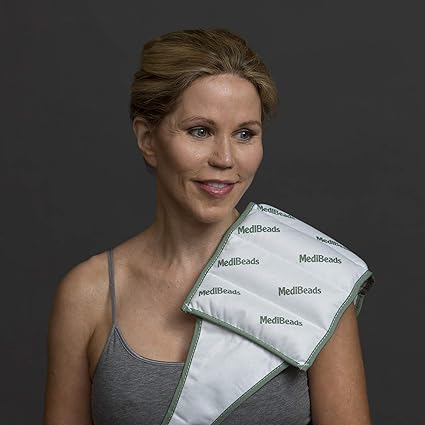
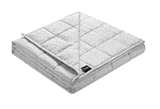



Hi, Ceci,
A lot of people could refer to what you wrote in this article. Thank you for putting it together, it helped me learn something new for myself.
In particular, I didn’t know that a weighted blanket helps you to relax and sleep better. You’ve just given me an idea of what to bring as a Christmas present for my parents.
Keep up the great work!
Best Wishes,
Natalie
Great! Happy Christmas shopping Natalie. Make sure you get your parents a lighter weight to begin with – Queen (15lb) or King (20lb).
Ceci
It must be hard to deal with arthritis and insomnia at the same time. I had no idea that insomnia often goes together with arthritis. I used to be an excellent sleeper. I could sleep anywhere and would fall asleep within seconds. Nowadays, although I still fall asleep within seconds I sometimes wake up at night, sometimes because my cat steps on me (like last night, lol), or a noise outside, but sometimes I wake up just like that. I have also had hot flashes at night recently, and they have also woken me up. I am dealing with the hot flashes now, and they have decreased 😉
I heard about weighted blankets, but I have never used one. I would like to get one. If they help with insomnia, they will come in very useful. I do not think I have insomnia, but I sitll think that I could use them. Could weighted blankets also provide some relief on painful joints?
Yes Christine, weighted blankets can be helpful for joint pain as well – provided the weight is not too heavy or this will cause more problems. Manufacturers that believe their product helps relieve joint pain happily announce this in their product description.
Ceci
Thank you for the article. I never thought insomnia was related or had an effect with arthrithis. I have often thought or rather felt my body having some sort of pain whenever I had lack of sleep and its been happening a lot currently
Arthritis could cause insomnia if you already have arthritis. Your lack of sleep may not be due to arthritis. if it persists, I suggest you visit your doctor to check out the true causes of your pain.
Ceci
Ceci,
I was interested to see that this article made its way to weighted blankets. A lot of people are talking about them lately. I was on a business trip last year and shared a cabin with an associate. His wife bought him one and he was skeptical at first, but then he couldn’t stop talking about it. He said he sleeps like a baby every single night. He won’t even travel without it.
My sister-in-law has been talking about them for a few months now but she didn’t want to buy one at the prices she was finding, so we bought her one for Christmas!
Keep helping people!
Tyler
I am absolutely sure that your sister-in-law will love her weighted blanket. I hope you followed the tips provided about weight and size? You do not want to have to return your purchase for an exchange. It can be such an inconvenience!
Ceci
Hi Ceci, thanks for putting together this great article! Recently, I have problems getting to sleep and sleeping through myself, so there was a lot in it for me, even if I (luckily) do not have to deal with the arthritis-part. I like the idea of getting a weighted blanket and have been thinking about this for a while now. Which one of those recommended above is your favorite and why? All the best, Chris
Choice is usually based on your preference. I personally like the seasonal (hot and cold convertible) weighted blankets types. This ensures that you can get the benefits of a weighted blanket all year round should you need it.
Ceci